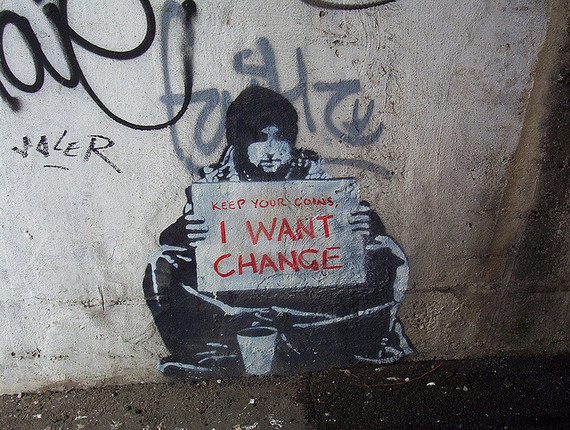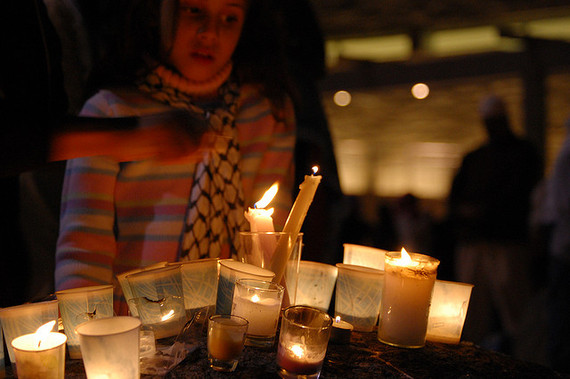With every social calamity there is a reaction. The social calamity was not Paris or San Bernardino; it was what followed. Instead of coming together to share in collective grief, we over-ridded two tragedies that produced hundreds of dead and injured bodies with our social stratifications based on fear and hate. The social calamity is that those who suffered in Paris and San Bernardino did not receive the full volume of our emotions; we took the tragedies and created a second group of victims: ourselves.
Those killed and injured in the terrorist attacks should have had our full attention; their suffering should have began and ended with their violent death and pain. Instead, weeks later, we use the dead to satisfy political agendas, hate speeches and fear mongering. "In the name of Paris and San Bernardino..." "For those who died in Paris and San Bernardino..." Their names are tied to speeches tinged with fear, violence and revenge. Their memories are recalled in the same breath as bigotry. Their lives and death are justified by political parties that stratify instead of unite.
The suffering of those on the two fateful days in Paris and San Bernardino should not be treated as any other death; these people were killed, violently, aggressively and for a political purpose. Our response must, therefore be political where the perpetrators of the violence should have to face a political reaction for their action. In order to have a decisive political reaction, we must have a united political body. But we don't have that. Instead of stifling the terrorist's source of power we have added fodder to their flame. We did exactly what they hoped we would do; we have divided amongst ourselves, preventing a powerful response. The social calamity is that people were brutally killed and we let their killers win because they terrorized communities far beyond those who felt the physical impact.
The power dynamic between ISIS and humanity is in the terrorist's favor. ISIS, as a terrorist group, has terrorized its victims. The term "victim" is a term associated with losing one's power to someone else. ISIS has taken away our power by killing two groups of people and instilling fear across the West, creating victims. My writing isn't going to bridge the political divide amongst the presidential candidates, political bodies and non-government associates; and it shouldn't. We need to maintain diversity in our counter-movement against ISIS. But that diversity should be molded into a unified foundation based on the fact that ISIS is a horrific group of ignorant, violent and inhuman people who need to be stopped. I think we can all agree on that.
To the victims of the terrorist attacks, I am sorry we have used you so poorly. I am sorry you are reminded of your pain and trauma so frequently as we continue to bring up your names for our selfish purposes. I am sorry you have become just another press release to be interpreted, used, and manipulated at the viewer's discretion. I am sorry you lost the right to be the sole social calamity, deserving our undivided attention and unconditional hopes and prayers. I am sorry we removed the painful humanity of your victimization and infiltrated it with ourselves.
------
Sumer Shaikh is based in Washington D.C., where she both works in the non-profit sector and conducts research on community-based development. She is currently engaged in advocating for social justice by empowering responsible leaders to cultivate an environment of acceptance and mutual respect between Muslims and all communities. A graduate of Clark University in Worcester, MA in International Development and Social Change, Sumer has experience as a community leader, a researcher on community oriented rural development, and a policy researcher on community-based healthcare. Through her work, she aims to bridge the gap between social stratifications based on religion, politics, race and culture, within American communities.


